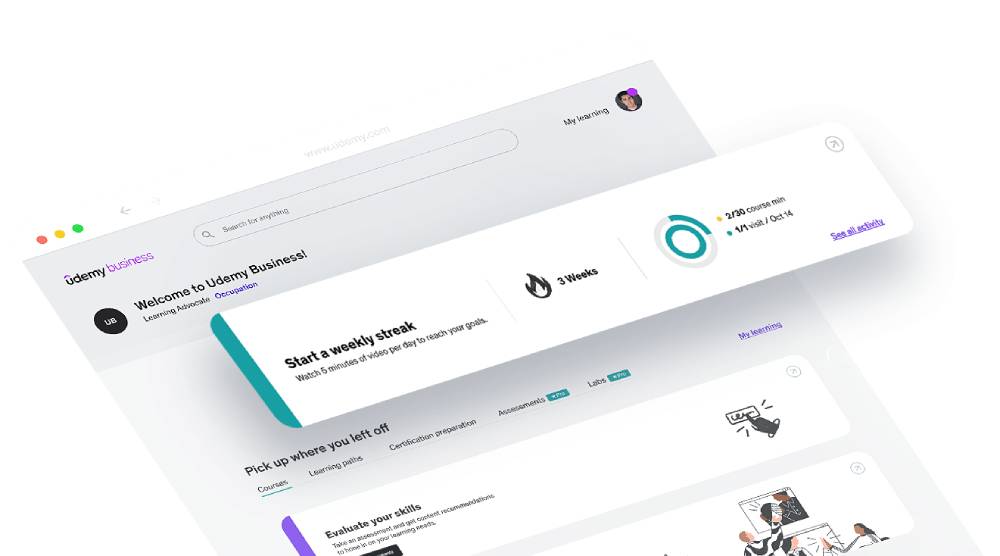The Education Blog

How to Take Effective Online Courses and Actually Learn
Online learning has revolutionised education. With the internet and digital platforms, people can now access high-quality courses from anywhere in the world. Whether you’re looking to upskill, switch careers, or explore personal interests, online courses offer flexibility and accessibility.
However, successfully completing online courses isn’t just about enrolling—it’s about staying committed and applying what you learn. This guide will help you:
- Choose the right online learning platforms.
- Develop effective learning strategies.
- Stay organised and motivated.
- Apply your new skills in real life.
Pro Tip: Create a dedicated study space free from distractions to enhance focus and productivity. This will help you stay organised and engaged with the course material.

Quick Guide: How to Take Effective Online Courses and Actually Learn
- Set Clear Goals: Define what you want to achieve, whether it’s career advancement or personal development.
- Create a Study Schedule: Set aside specific times each week for learning and treat it like a traditional class.
- Stay Organised: Use digital tools like Evernote or Notion to keep track of notes, assignments, and deadlines.
- Engage with the Content: Take notes, participate in discussions, and apply what you learn through practical projects.
- Seek Support: Don’t hesitate to ask questions in discussion boards or contact instructors for guidance.
Important Tip: Staying consistent and organised is key to successful online learning. Use tools like Google Calendar and Todoist to manage your time and keep track of your progress. Avoid multitasking and focus on one course at a time for better retention.!
Why Online Learning Matters
Online learning has grown significantly in recent years. Here’s why it’s so important:
1. Accessibility and Flexibility
- Global Access: Take courses from top universities or industry experts without location restrictions.
- Flexible Schedules: Learn at your own pace, perfect for working professionals and busy individuals.
- Self-Paced Learning: Revisit lessons and materials whenever needed.
2. Diverse Course Selection
- Wide Range of Subjects: Learn anything from business and technology to creative skills and personal development.
- Niche Specializations: Explore unique topics that may not be offered at traditional institutions.
3. Cost-Effectiveness
- Affordable Learning: Many platforms offer free or low-cost courses.
- No Travel Costs: Learn from home, saving money on transportation and accommodation.
4. Enhanced Learning Experience
- Interactive Content: Courses often include videos, quizzes, and discussion boards to enhance engagement.
- Certificates and Credentials: Many platforms provide certificates that you can add to your resume or LinkedIn profile.
Choosing the Best Online Course Platforms
Selecting the right platform is key to having a productive learning experience. Here are some of the top online learning platforms:
1. Coursera
- Best For: Academic and professional development.
- Key Features:
- Courses from top universities (e.g., Stanford, Yale).
- Video lectures, assignments, and peer-reviewed projects.
- Offers certificates and even full degrees.
2. Udemy
- Best For: Skills-based learning.
- Key Features:
- Wide variety of courses on personal and professional skills.
- Affordable pricing with frequent discounts.
- Lifetime access to purchased courses.
3. edX
- Best For: Academic and technical subjects.
- Key Features:
- Courses from universities like Harvard and MIT.
- Free courses with paid options for verified certificates.
- Suitable for professional and technical skills.
4. LinkedIn Learning
- Best For: Career-focused skills.
- Key Features:
- Business, technology, and creative courses.
- Integrates with LinkedIn profiles.
- Offers certificates of completion.
5. FutureLearn
- Best For: Social learning.
- Key Features:
- Courses from universities and cultural institutions.
- Interactive discussions with learners.
- Offers free and paid courses with optional certificates.
How to Complete Online Courses Successfully
1. Set Clear Goals
- Define Your Objectives: Are you aiming to advance your career, gain academic skills, or develop personally?
- Write Down Your Goals: Clear objectives keep you motivated and focused.
- Track Your Progress: Use milestones to measure achievements and stay on course.
2. Create a Study Schedule
- Consistent Learning: Set aside dedicated time slots for studying.
- Treat It Like a Traditional Class: Commit to the schedule with discipline.
- Use Time Management Tools: Utilize apps like Google Calendar, Todoist, or Notion to manage your time effectively.
3. Stay Organized
- Organise Your Materials: Store notes, assignments, and resources systematically.
- Use Digital Tools: Use Evernote or Notion for structured note-taking.
- Set Reminders: Stay on top of deadlines and assignments with notifications.
4. Engage with the Content
- Active Learning: Take notes, ask questions, and engage in discussions.
- Practice What You Learn: Apply skills through projects or real-life scenarios.
- Participate in Forums: Engage with fellow learners to gain insights and support.
5. Seek Support When Needed
- Use Discussion Boards: Interact with peers and instructors.
- Contact Instructors: Reach out for clarifications or guidance.
- Join Online Communities: Network with learners on Reddit, Facebook, or Discord.

Self-Paced Learning Tips
Many online courses are self-paced, allowing you to learn on your own schedule. Here’s how to make the most of them:
1. Set Milestones
- Break It Down: Divide the course into manageable chunks.
- Set Weekly Goals: Keep yourself accountable with regular targets.
- Celebrate Progress: Acknowledge small achievements to stay motivated.
2. Take Regular Breaks
- Use the Pomodoro Technique: Study for 25 minutes, then take a 5-minute break.
- Prevent Burnout: Breaks help maintain focus and prevent mental fatigue.
3. Review and Revise
- Regular Reviews: Go over your notes weekly.
- Flashcards and Summaries: Use them to reinforce key concepts.
- Practice Tests: Test yourself with quizzes and exercises.
Expert Tips & Common Mistakes to Avoid
Best Practices for Effective Online Learning
- Create a Dedicated Study Space: Minimize distractions by studying in a quiet environment.
- Use Multiple Resources: Supplement course content with articles, books, and videos.
- Stay Consistent: Commit to regular learning sessions to maintain momentum.
Common Mistakes to Avoid
- Procrastination: Stick to your study schedule and avoid delays.
- Skipping Assignments: Complete all assignments to reinforce learning.
- Multitasking: Focus on one course or module at a time for better retention.
Advanced Insights & Expert Recommendations
1. Network with Peers and Professionals
- Connect on LinkedIn: Add course participants to expand your professional network.
- Join Forums: Engage in discussions to share insights and learn from others.
- Collaborate on Projects: Work with peers on shared projects to apply skills practically.
2. Apply Your Skills in Real Life
- Freelance or Volunteer: Use your skills in practical settings.
- Create Personal Projects: Apply course knowledge to personal or creative projects.
- Leverage Skills at Work: Use new competencies in your current job to gain hands-on experience.
3. Supplement with External Resources
- YouTube and TED Talks: Watch expert interviews and educational content.
- Podcasts: Listen to industry professionals share insights.
- Books and Articles: Read in-depth resources related to your field of study.
FAQs
Q: What are the best platforms for free online courses?
- Coursera, edX, FutureLearn, and Udemy offer free courses with optional paid certificates.
Q: How can I stay motivated during self-paced courses?
- Set clear goals, create a study schedule, and celebrate small achievements.
Q: Do online course certificates hold value?
- Yes. Certificates from reputable platforms can enhance your resume and LinkedIn profile.
Q: How can I avoid procrastination when learning online?
- Use time management tools, set deadlines, and break courses into smaller tasks.

Mastering Online Learning: Your Path to Success
Online learning opens up endless possibilities for personal and professional growth. By choosing the right platforms, setting clear goals, and applying effective learning strategies, you can maximise the value of online courses.
Start exploring new courses, sharpen your skills, and achieve your learning goals today!









